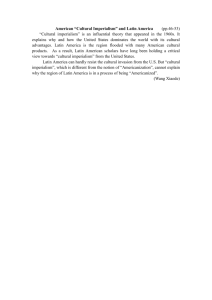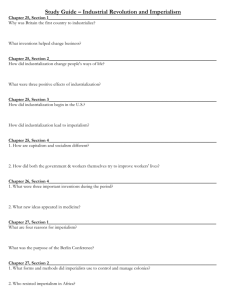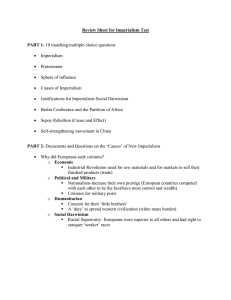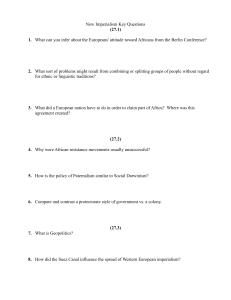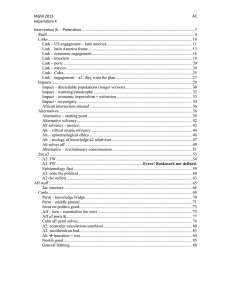World History II
advertisement
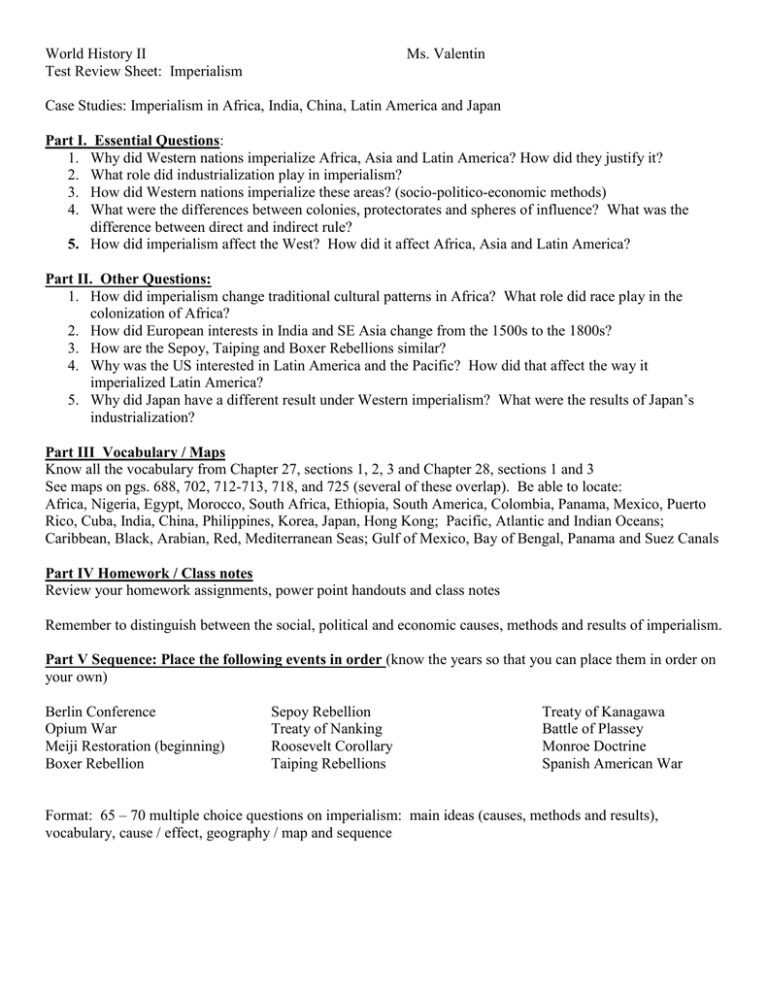
World History II Test Review Sheet: Imperialism Ms. Valentin Case Studies: Imperialism in Africa, India, China, Latin America and Japan Part I. Essential Questions: 1. Why did Western nations imperialize Africa, Asia and Latin America? How did they justify it? 2. What role did industrialization play in imperialism? 3. How did Western nations imperialize these areas? (socio-politico-economic methods) 4. What were the differences between colonies, protectorates and spheres of influence? What was the difference between direct and indirect rule? 5. How did imperialism affect the West? How did it affect Africa, Asia and Latin America? Part II. Other Questions: 1. How did imperialism change traditional cultural patterns in Africa? What role did race play in the colonization of Africa? 2. How did European interests in India and SE Asia change from the 1500s to the 1800s? 3. How are the Sepoy, Taiping and Boxer Rebellions similar? 4. Why was the US interested in Latin America and the Pacific? How did that affect the way it imperialized Latin America? 5. Why did Japan have a different result under Western imperialism? What were the results of Japan’s industrialization? Part III Vocabulary / Maps Know all the vocabulary from Chapter 27, sections 1, 2, 3 and Chapter 28, sections 1 and 3 See maps on pgs. 688, 702, 712-713, 718, and 725 (several of these overlap). Be able to locate: Africa, Nigeria, Egypt, Morocco, South Africa, Ethiopia, South America, Colombia, Panama, Mexico, Puerto Rico, Cuba, India, China, Philippines, Korea, Japan, Hong Kong; Pacific, Atlantic and Indian Oceans; Caribbean, Black, Arabian, Red, Mediterranean Seas; Gulf of Mexico, Bay of Bengal, Panama and Suez Canals Part IV Homework / Class notes Review your homework assignments, power point handouts and class notes Remember to distinguish between the social, political and economic causes, methods and results of imperialism. Part V Sequence: Place the following events in order (know the years so that you can place them in order on your own) Berlin Conference Opium War Meiji Restoration (beginning) Boxer Rebellion Sepoy Rebellion Treaty of Nanking Roosevelt Corollary Taiping Rebellions Treaty of Kanagawa Battle of Plassey Monroe Doctrine Spanish American War Format: 65 – 70 multiple choice questions on imperialism: main ideas (causes, methods and results), vocabulary, cause / effect, geography / map and sequence

